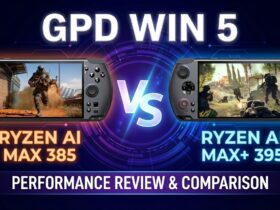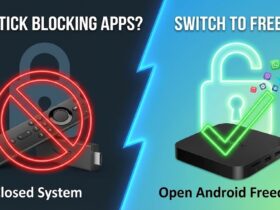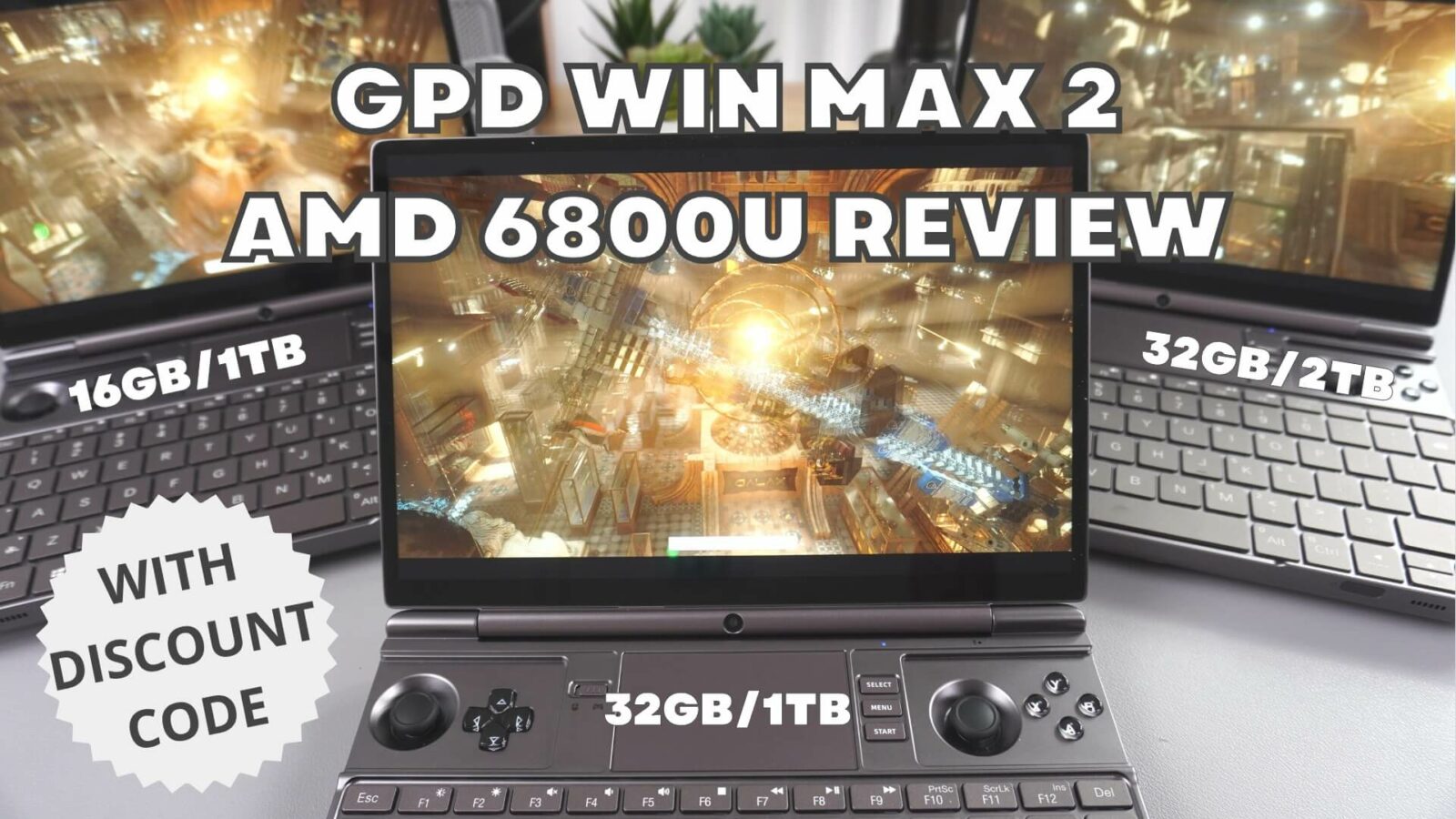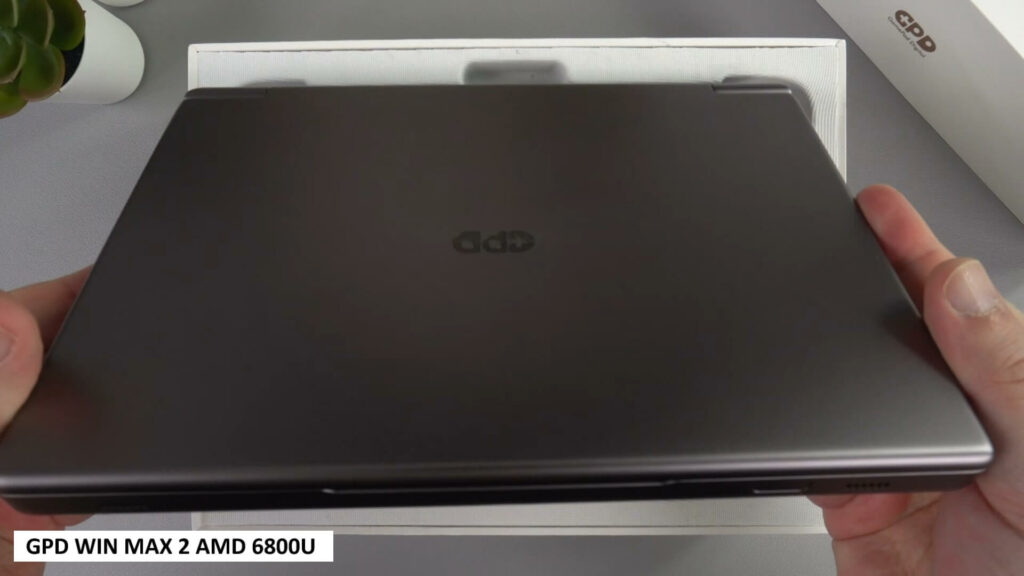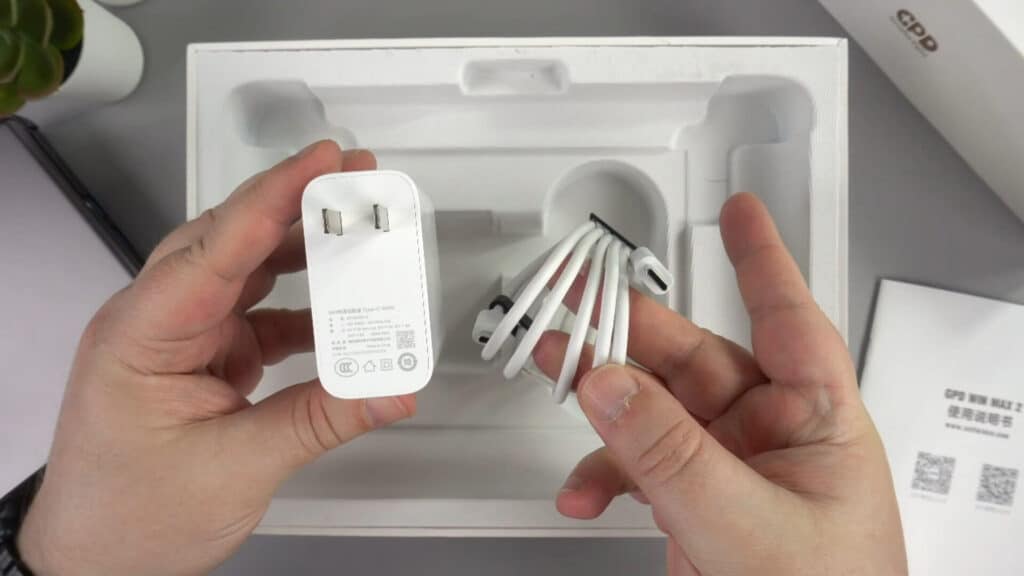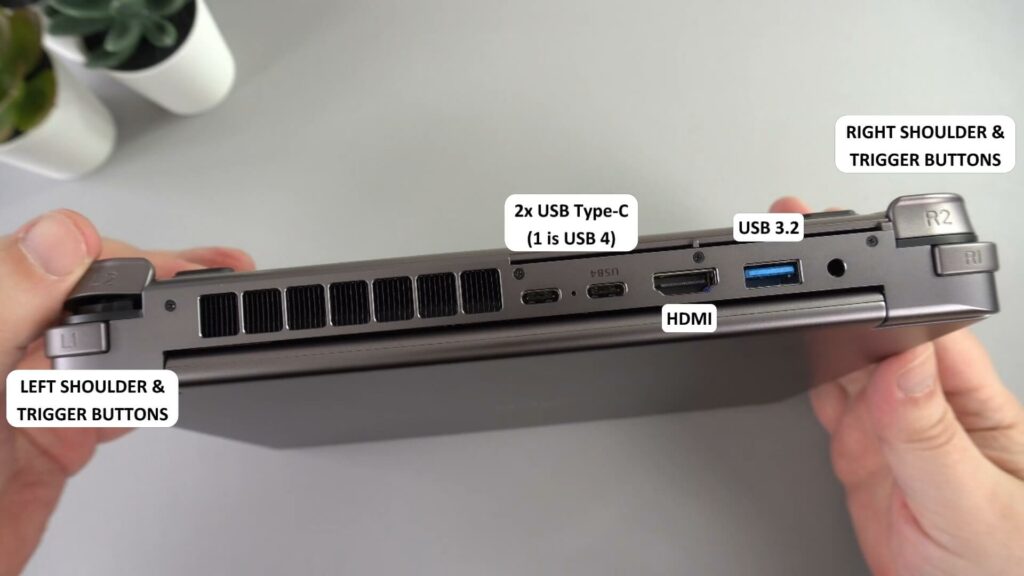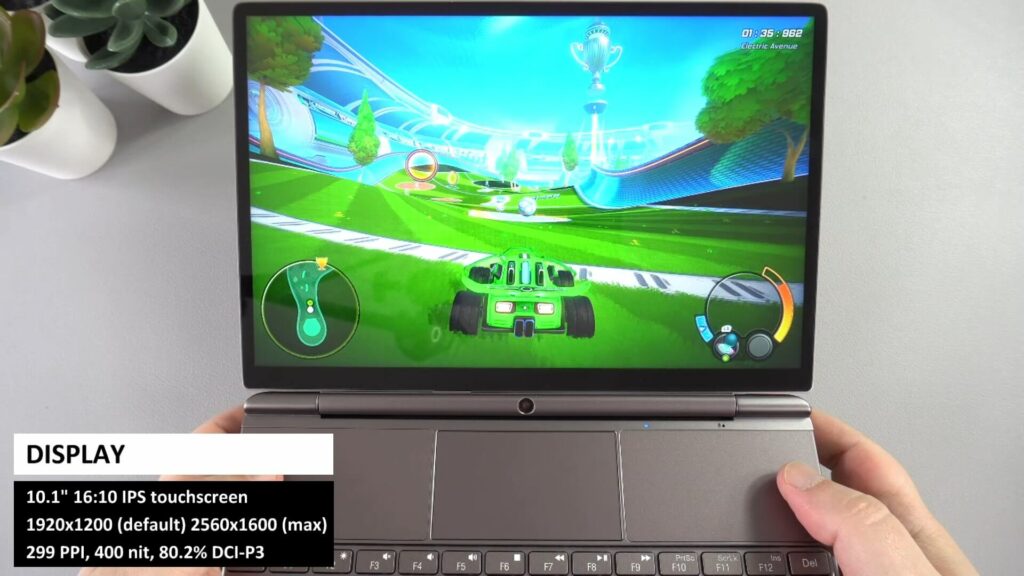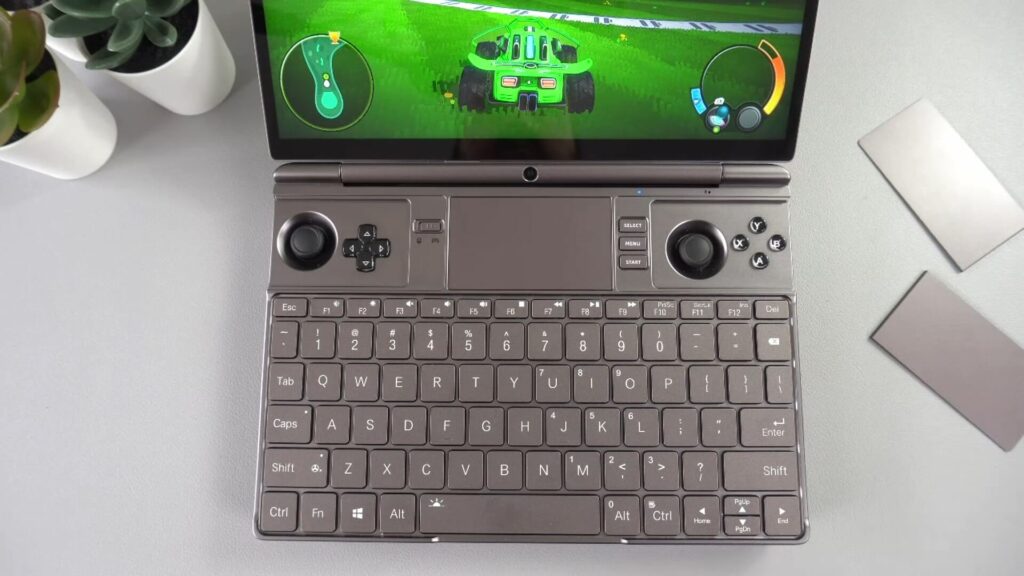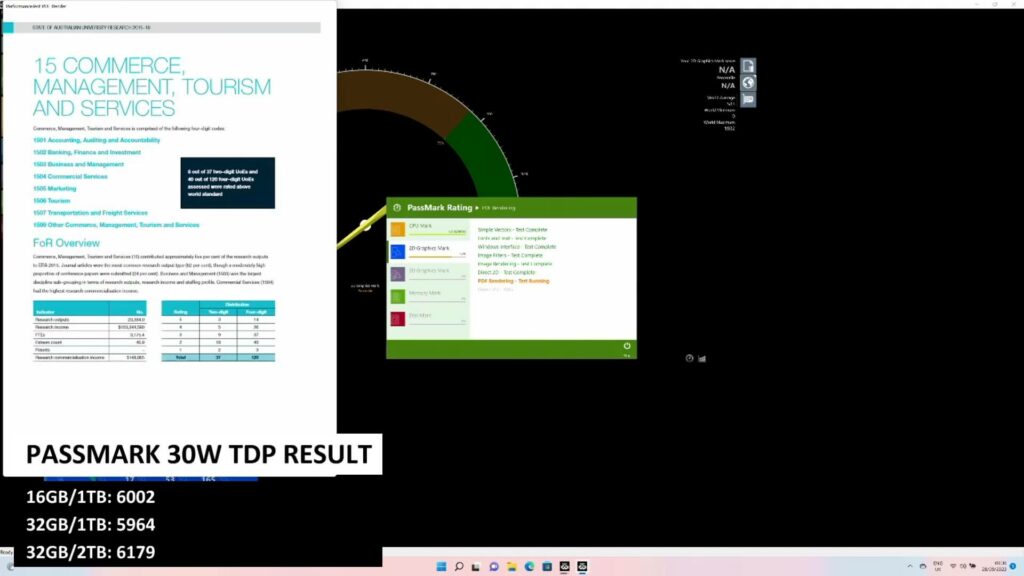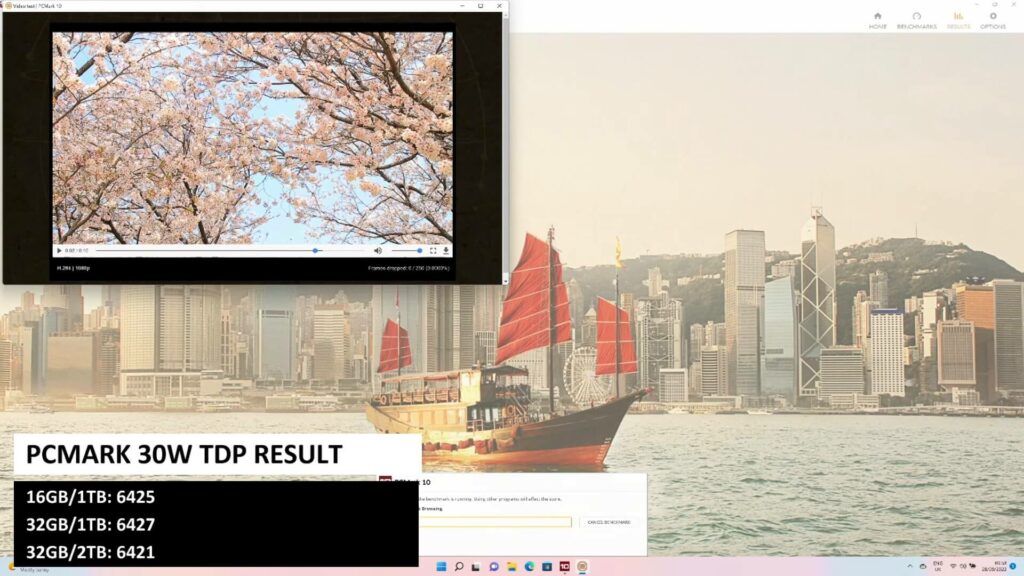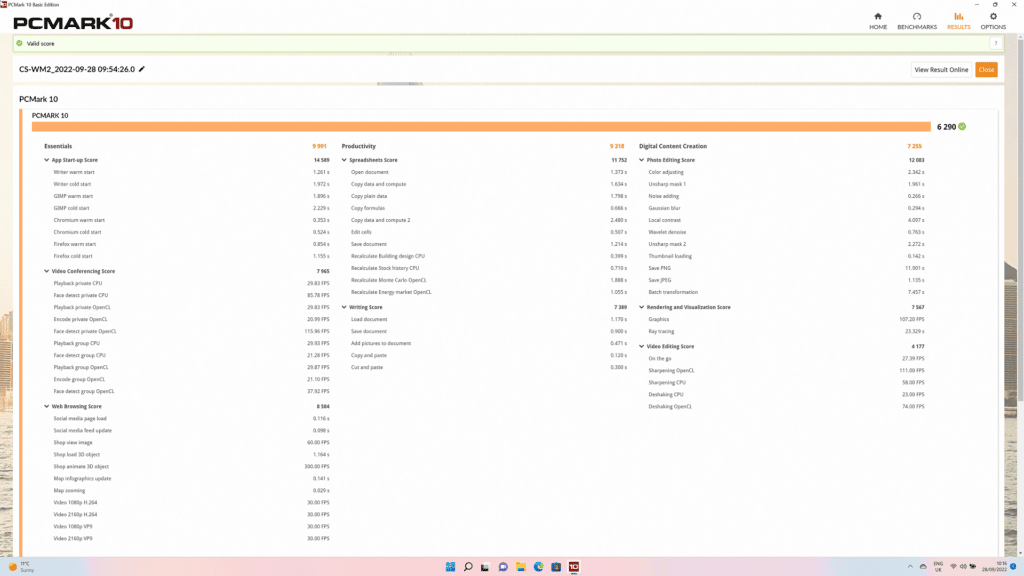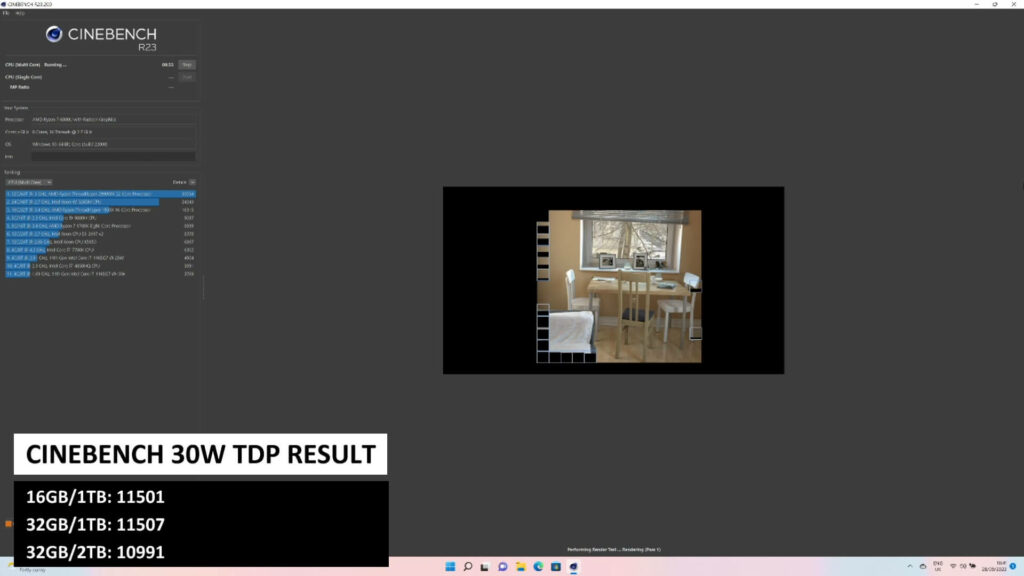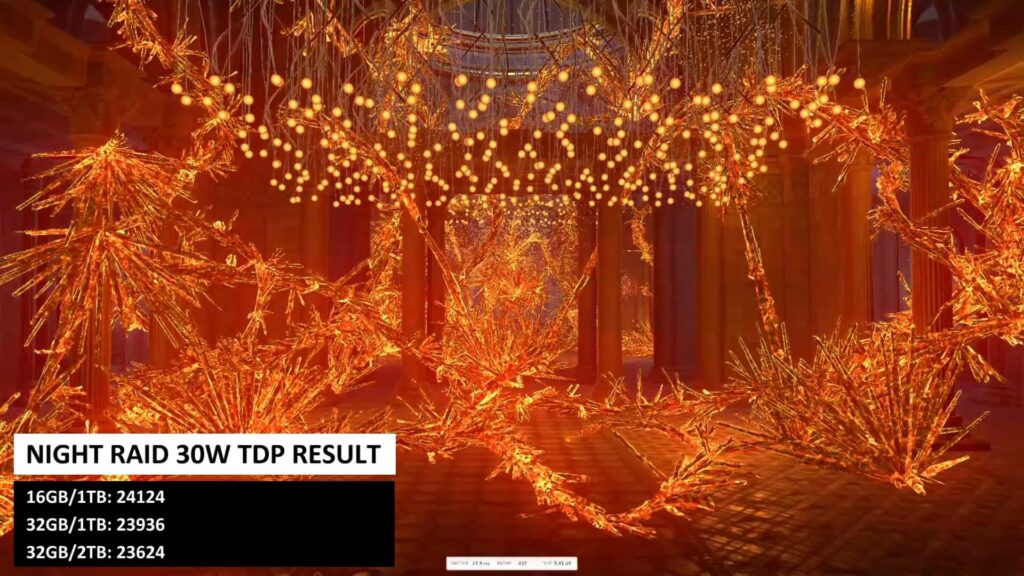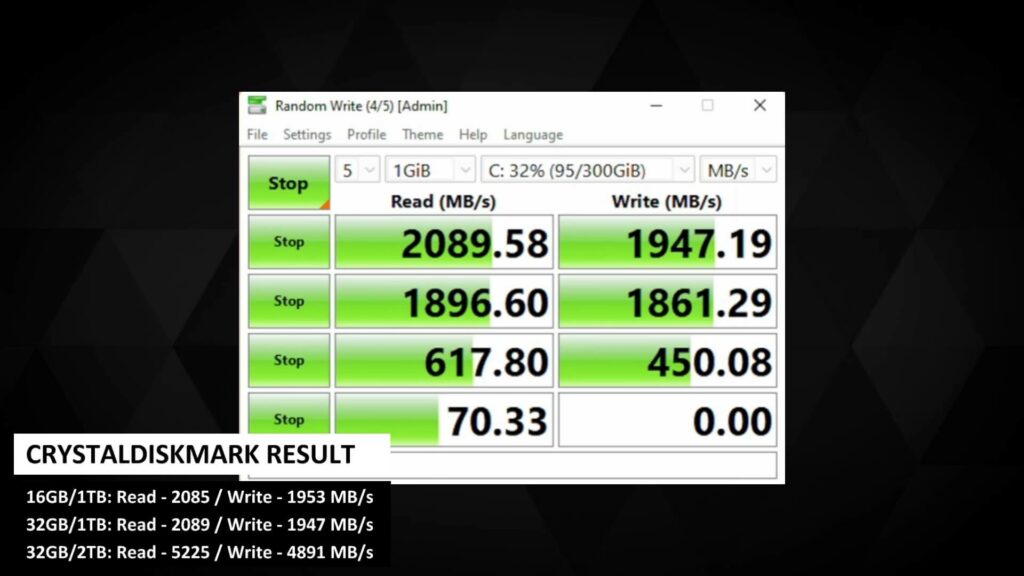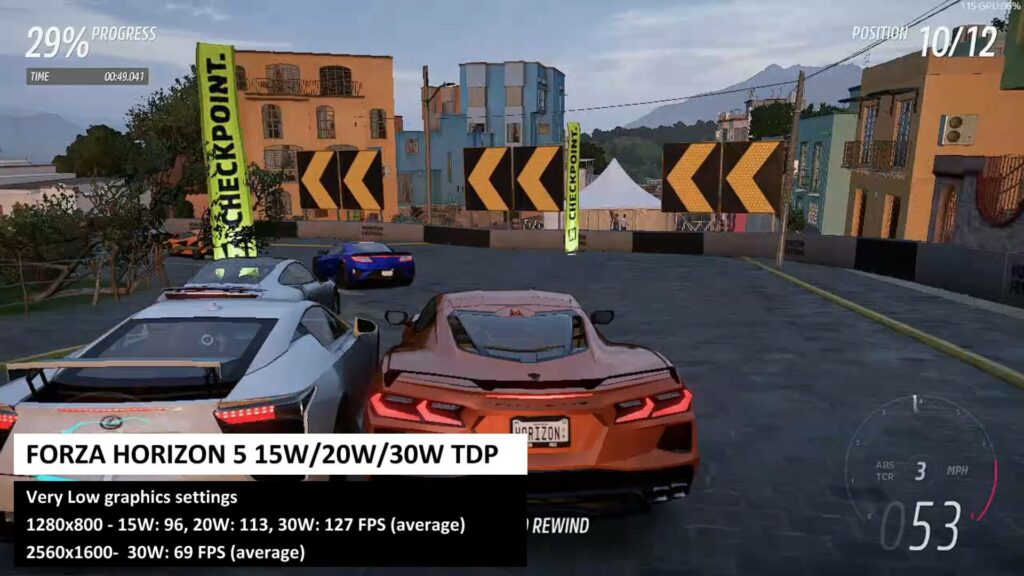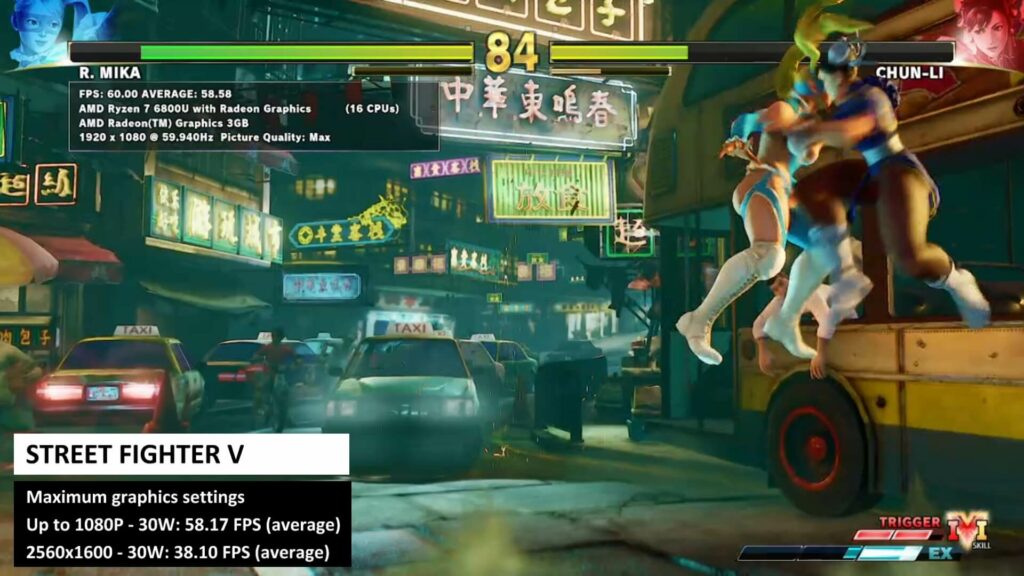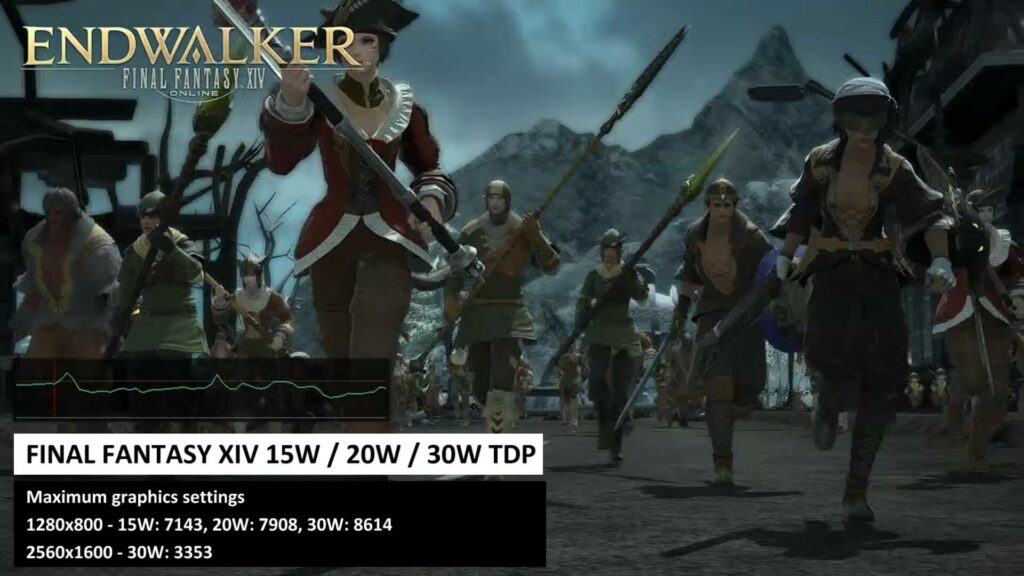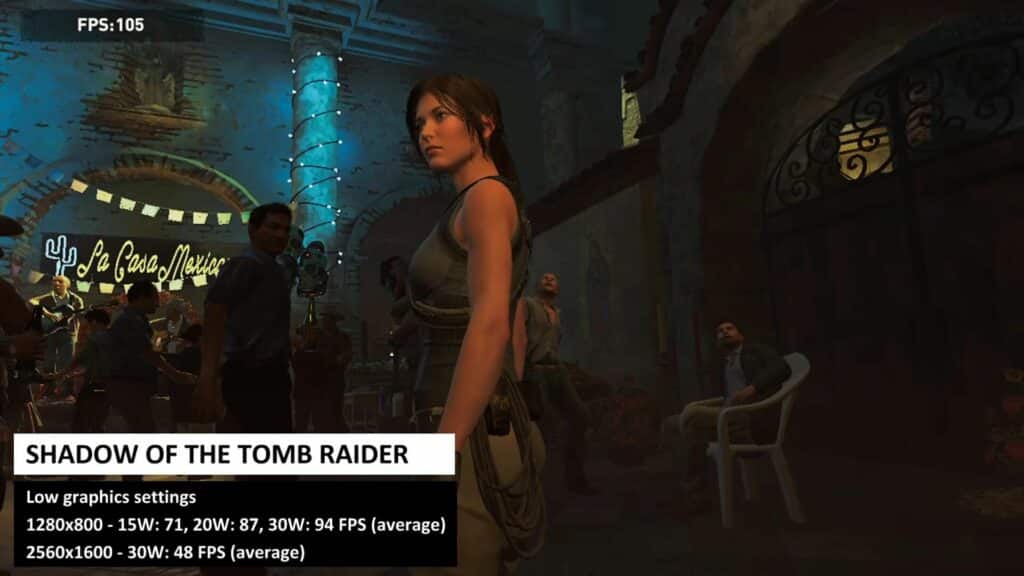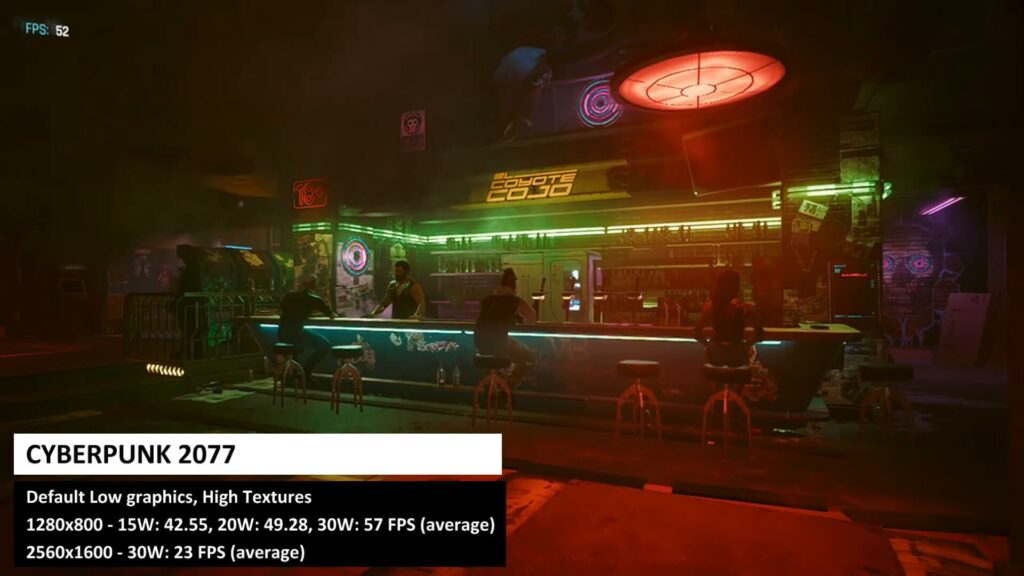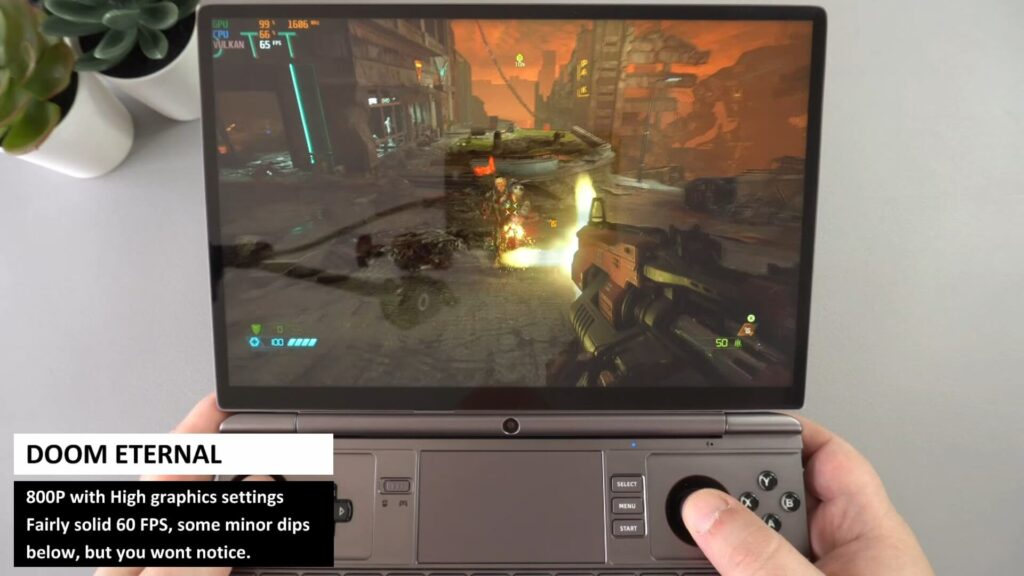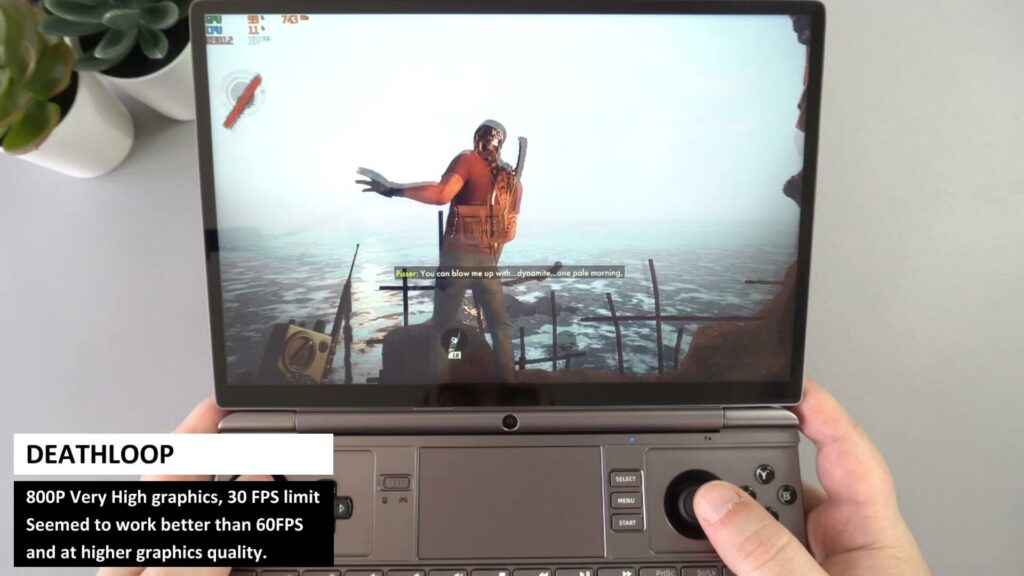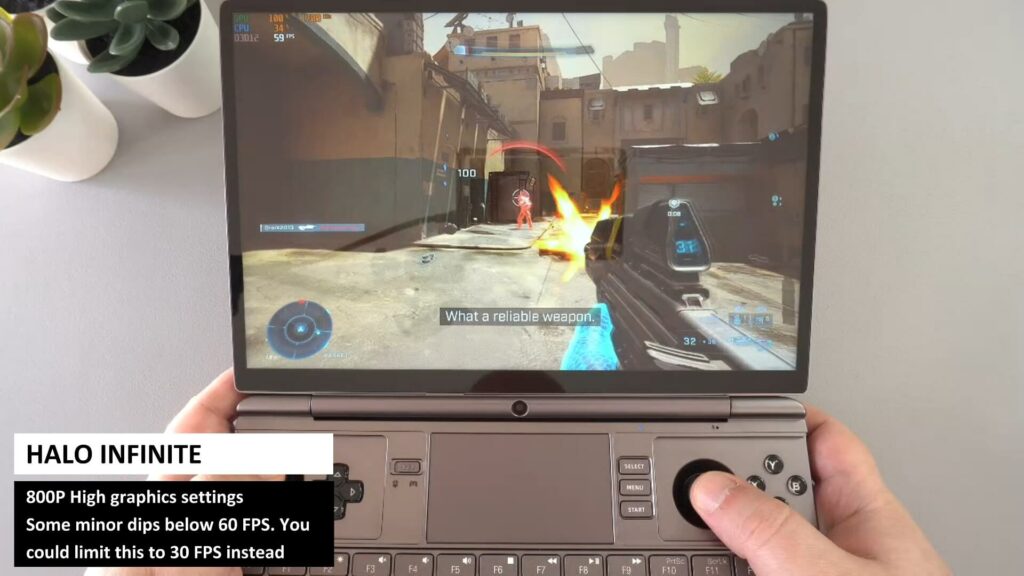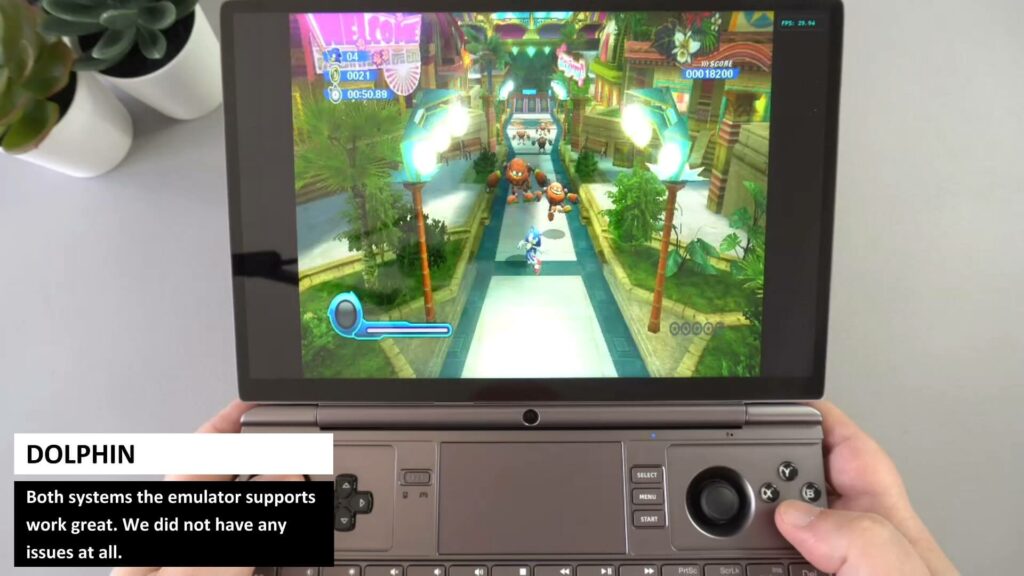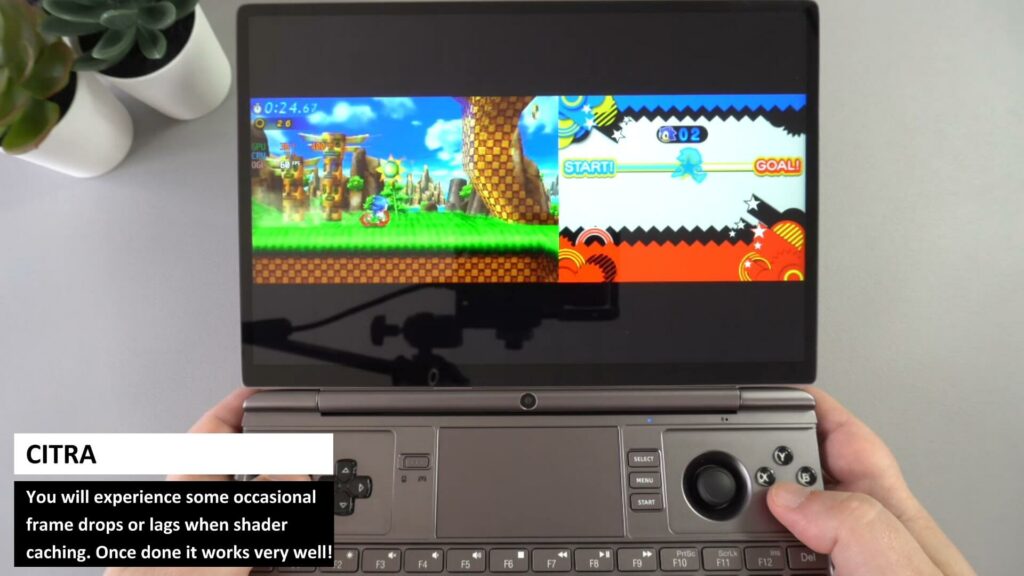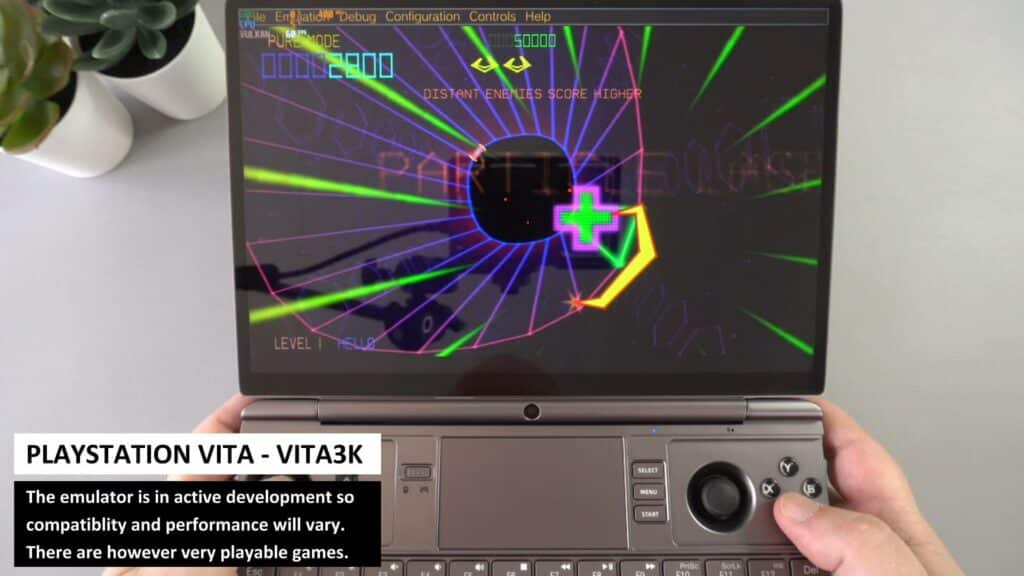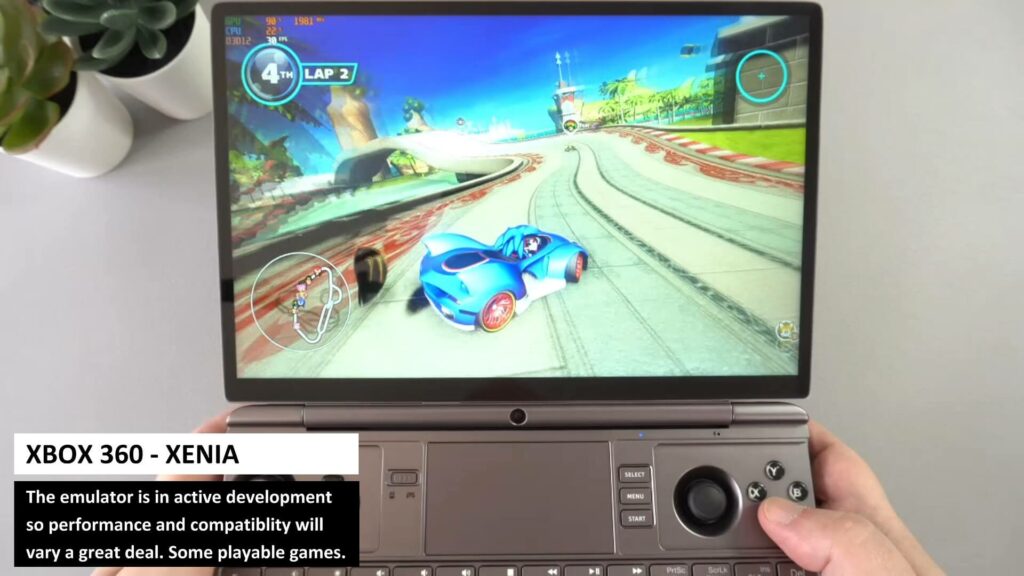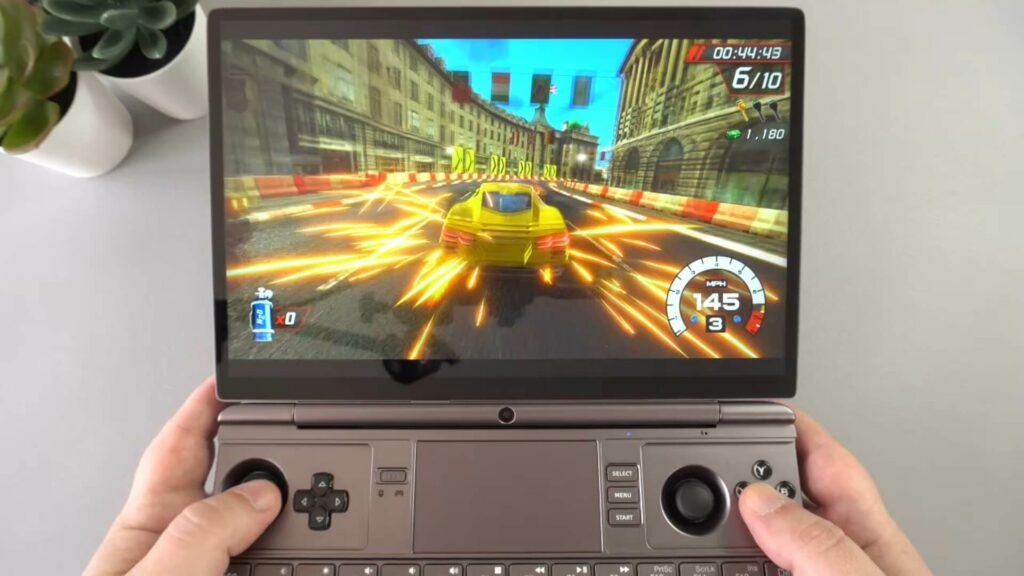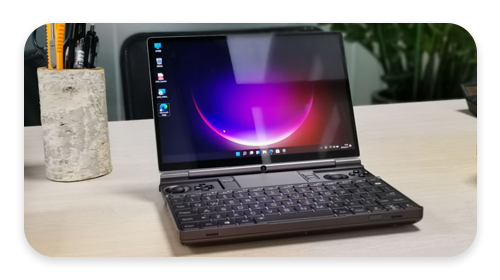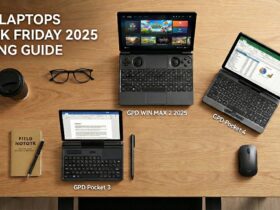-
Design
(5)
-
Build Quality
(5)
-
Display
(5)
-
Performance
(5)
-
Features
(4.5)
Sammendrag
GPD WIN MAX 2 med AMD Ryzen 7 6800U er et beist av en AAA-håndholdt spill-PC!
Totalt sett
4.9Brukeranmeldelse
( votes)Fordeler
- Raske AMD Ryzen 7 6800U og 680M-prosessorer
- Alternativer for 16 GB eller 32 GB RAM
- Utrolig stor 10,1″ skjerm
- Avtakbare kontrollerdeksler for bruk i arbeidsmiljøer
- Brukbar musematte og tastatur
- Utmerket batterilevetid
- 4G LTE for data (tilleggsutstyr)
Ulemper
- For noen kan det være ubehagelig å holde MAX 2 over lengre tid.
- 2 TB er litt tregere i spill enn 1 TB-modellen
Du har ventet lenge på GPD WIN MAX 2 gaming mini laptop, og nå får du tre på en gang! I vår GPD WIN MAX 2-anmeldelse tar vi en titt på tre modeller av den håndholdte spill-PC-en, og setter den på prøve med noen system- og spillbenchmarks. Deretter avslutter vi med å spille noen spill og emulatorer for å se hvor godt de presterer.
GPD WIN MAX 2 Gjennomgangsvideo
Utpakking av GPD WIN MAX 2 AMD
Som alltid starter vi med å pakke ut boksen. Når du løfter lokket, får du se en skjermbeskytter og en tørketrommel for å rengjøre skjermen før påføring. Under er GPD WIN MAX 2 gaming mini laptop seg selv. Vi vil vise den i mer detalj om kort tid.
Det følger med en liten eske som inneholder brukerhåndboken, som er på kinesisk og engelsk.
Og sist, men ikke minst, har vi en lader og en USB Type-C-kabel. Vi inkluderer riktig adapter for ditt land når du bestiller,
GPD WIN MAX 2 AMD Oversikt
Designet har ikke endret seg siden vi anmeldte den nå utgåtte Intel-modellen for noen måneder siden. Sammenfoldet måler GPD Win MAX 2 8,9 x 6,2 x 0,9 (22,7 × 16,0 × 2,3 cm), og veier 1 005 gram.
På baksiden er venstre og høyre skulderknapp og avtrekkerknapper. Det er en 3,5 mm hodetelefonkontakt og en USB 3.2-port. Deretter er det en HDMI-port for tilkobling til en TV eller skjerm. Det er to USB Type-C-porter, hvorav den ene er USB 4 for tilkobling av en ekstern GPU(GPD G1 eGPU) for eksempel. Og over er de to sporene der kontrollerdekslene er lagret.
På venstre side er det spor for Micro- og SD-kort. Og på høyre side er det to USB 3.2 Gen 2-porter. På forsiden er det en av/på-knapp som har en innebygd fingeravtrykksskanner for rask innlogging i Windows 11.
Skjermen er en 10,1 tommers berøringsskjerm med en opprinnelig oppløsning på 1920×1200, men den støtter opptil 2560×1600. Under skjermen er det et 2 MP-kamera med høy oppdateringsfrekvens som er godt egnet for videosamtaler. Det er en klikkbar berøringsplate for navigering som med en mus.
Under er det et QWERTY-tastatur som har to nivåer av bakgrunnsbelysning. Det er to avtakbare deksler som skjuler spillkontrollene, slik at du for eksempel kan bruke GPD Win MAX 2 som en mini-laptop til jobb. Det er en fin idé fra GPD!
Du har de vanlige spillkontrollene, doble klikkbare analoge hallsensorpinner, D-Pad og spillknapper. La oss prøve dem ut mens vi går gjennom de tekniske spesifikasjonene!
GPD WIN MAX 2 AMD Tekniske spesifikasjoner
| CPU | AMD Ryzen 7 6800U-prosessor, den har 8 kjerner og 16 tråder som kjører opptil 4,7 GHz med en standard TDP på 28 W |
| GPU | AMD Radeon 680M med 12 kjerner som kjører opptil 2200 MHz |
| RAM | 16 GB eller 32 GB LPDDR5 6400 RAM |
| OPPBEVARING | 1 TB eller 2 TB m.2 PCIe 4 SSD |
| KOMMUNIKASJON | WiFi 6 Bluetooth 5.2 4G LTE-modul (selges separat) |
| BATTERI* | 67Wh oppladbart batteri Tomgang på skrivebordet: 10 timer og 50 minutter (7 timer og 30 minutter før batterisparing startet) Cinebench på full belastning: 2 timer og 5 minutter |
| VENTILATORSTØY* | 63db |
| TEMPERATUR* | 63°C |
*I våre tester av viftestøy og temperatur kjørte vi Cinebench i 10 minutter med standard TDP på 28 W og målte begge deler. Vi fikk en høyeste temperatur på 63 grader og den høyeste viftestøyen på 63 dB.
Vi lot MAX 2 gå på tomgang på skrivebordet med bare BatteryMon, og den kjørte i 10 timer og 50 minutter, hvorav de første 7 timene og 30 minuttene var før batterispareren slo inn, og resten mens den var på batterisparer. Når vi kjørte Cinebench på full belastning ved 28W TDP fikk vi imponerende 2 timer og 5 minutter.
Systembenchmarks
Vi fortsetter vår GPD WIN MAX 2-anmeldelse med å sette de tre håndholdte spill-PC-ene på prøve med noen systembenchmarks. Vi tester på 30W TDP, den kan gå høyere, men den medfølgende programvaren tillater bare opptil 30. Vi kan dekke endring av TDP og grafikkhastigheter i en egen artikkel hvis det er nok interesse, gi oss beskjed i kommentarfeltet.
PassMark
Vi starter med PassMark, som presser CPU, GPU, RAM og lagring til sitt maksimale i en rekke tester. Ved 30W TDP fikk vi lignende score på 6002, 5964 og 6179. 2TB-modellen har en høyere poengsum ettersom den bruker en SSD av et annet merke, dette kan endre seg i kundemodeller, og vi vil varsle hvis det gjør det.
PCMark
PCMark-referansen har en rekke mer naturlige tester som dekker daglige oppgaver, fra nettsurfing til bildebehandling. Ved 30 W TDP fikk vi en score på 6425, 6427 og 6421. Alle lignende score som vi forventet, kan du se en oversikt over referansetestene nedenfor.
Cinebench
Deretter har vi Cinebench som tester CPU-en for å se ytelsen med enten enkelt- eller flerkjernetester. I våre flerkjernetester fikk vi poengsummer på 11501, 11507, 10991. 32/2TB-modellen henger etter her i testene.
3DMark
3DMark-referansen tester CPU og GPU for å se hvor godt de fungerer sammen i videobehandlingsoppgaver.
| Tidsspion | Fire Strike | Nattangrep | |
| WIN MAX 2 16 GB/1TB | 2840 | 6823 | 24124 |
| WIN MAX 2 32 GB/1TB | 2819 | 6770 | 23936 |
| WIN MAX 2 32 GB/2TB | 2771 | 6681 | 23624 |
Vi ser at resultatene ligger ganske nær hverandre, men igjen ser vi at 32 GB/2 TB-modellen sakker akterut i hver av de tre testene.
CrystalDiskMark
CrystalDiskMark-referansen kjører en rekke tester på lagringsenheten for å se ytelsen på tvers av ulike lese-/skrivemønstre.
De to 1 TB-modellene har samme SSD, og vi ser nesten identiske resultater for dem begge. 2TB-modellen har et annet merke, og vi får over 5000 MB/s i sekundet. Som vi nevnte var dette merket vi ble levert med av GPD, men dette kan endre seg for detaljhandelsversjonene.
Benchmarks for spill
Som en del av vår GPD WIN MAX 2-anmeldelse vil vi nå kjøre noen spillbenchmarks for å se hvor godt de presterer. Ut fra systembenchmarkene presterte 32 GB/1 TB best totalt sett, så vi vil bruke denne til benchmarkene. Vi kjører benchmarkene med 800P-oppløsning ved 15W, 20W og 30W, med en ekstra test ved 2560×1600 (1600p) ved 30W. Dette er den høyeste oppløsningen skjermen støtter.
Forza Horizon 5
Vi kjører Forza Horizon 5 på 800P med svært lave grafikkinnstillinger.
Ved 15 W TDP får vi 96 bilder per sekund i gjennomsnitt, ved 20 W fikk vi 113 og ved 30 W fikk vi 127. Og ved 1600P fikk vi 69 bilder per sekund.
Det er vår desidert høyeste FPS på en håndholdt, den nest nærmeste var ONEXPLAYER Mini 5800U med 88 FPS.
Street FIghter V
Vi kjører Street Fighter V på 800P på maksimal grafikk. AMD-prosessorer scorer generelt lavere enn Intel-prosessorer på denne referanseindeksen.
Ved 15W TDP får vi hele 60 bilder per sekund. Du kan kjøre den rundt 1080P på slutten av 20-tallet før den begynner å falle under 60. Ved 1600P-oppløsning på 30W fikk vi 38 bilder per sekund i gjennomsnitt.
Final Fantasy XIV
For Final Fantasy XIV-referansen kjører vi på 800P på de maksimale grafikkinnstillingene.
For 15W TDP fikk vi en score på 7143, 20W fikk vi 7908 og 30W 8614. Alle veldig gode poengsummer i kategorien High! Ved 1600P fikk vi en fortsatt spillbar poengsum på 3353.
Shadow of the Tomb Raider
Vi kjører Shadow of the Tomb Raider på 800P med lave grafikkinnstillinger.
Ved 15 W TDP fikk vi et gjennomsnittlig antall bilder per sekund på 71, ved 20 W fikk vi 87 og ved 30 W fikk vi 94. Ved 1600P på 30W fikk vi et imponerende gjennomsnitt på 48 FPS, noe noen tidligere håndholdte PC-er slet med å få til ved 720P!
Cyberpunk 2077
Vi avslutter referansetestene med Cyberpunk 2077, som er et svært krevende spill. Vi kjører på 800P på standard lave grafikkinnstillinger med høy teksturkvalitet.
For 15 W fikk vi en gjennomsnittlig FPS på 42,55, ved 20 W fikk vi 49,28, og ved 30 W fikk vi 57. Alle veldig gode resultater! Ved 1600P fikk vi bare 23 FPS, noe som fortsatt er respektabelt med tanke på spillets krav og oppløsning.
Sammenfatning og sammenligning av referanseverdier
Sammenligning av 30 W TDP
Nedenfor er sammenligningene av systemreferanser for 30W TDP. Du kan se på PassMark at den raskere 2TB gjør en forskjell i poengsummen ettersom den inkluderer diskytelsestester, men 2TB-modellen faller bak i de andre testene. De to 1 TB-modellene har svært lik poengsum i de andre testene.
Hvorfor henger 2 TB-modellen litt etter? Vi tror at SSD-enheten kanskje bruker flere PCIe-baner og trekker litt strøm fra prosessoren og grafikken, noe som resulterer i litt lavere ytelse.
| WIN MAX 2 16 GB/1TB | WIN MAX 2 32 GB/1TB | WIN MAX 2 32 GB/2TB | |
| PASSMARK | 6002 | 5964 | 6179 |
| PCMARK | 6425 | 6427 | 6421 |
| 3DMARK | 2840 | 2819 | 2771 |
| CINEBENCH | 11501 | 11507 | 10991 |
| CRYSTALDISKMARK | 2091 / 1955 MB/s | 2091 / 1961 MB/s | 5225 / 4891 MB/s |
15 W, 20 W og 30 W TDP-ytelse
I tabellen nedenfor finner du resultatene for 32 GB/1 TB-modellen med 15 W, 20 W og 30 W TDP ved oppløsningene 800P og 1600P. De er alle veldig imponerende, og det gir deg definitivt valgmuligheter avhengig av spillene du spiller, om du vil kjøre lav eller høy TDP og hvilken skjermoppløsning.
| 15W TDP (800P) | 20W TDP (800P) | 30W TDP (800P / 1600P) | |
| 3DMARK | 2135 | 2478 | 2819 |
| FORZA HORIZON 5 | 96 FPS | 113 FPS | 127 / 69 FPS |
| FINAL FANTASY XIV | 7143 | 7908 | 8614 / 3353 |
| TOMB RAIDER | 71 FPS | 87 FPS | 94 / 48 FPS |
| CYBERPUNK 2077 | 42,55 FPS | 49,28 FPS | 57 / 23 FPS |
GPD WIN MAX 2 AMD vs Intel-modeller
Tabellen nedenfor viser 30W-resultatene sammenlignet med GPD WIN MAX 2 Intel-prosessormodellen vi anmeldte for noen måneder siden. Til tross for at Intel-prosessoren har en høyere TDP på 35 W, har AMD høyere resultater i alle tester. Dette inkluderer de som Intel-prosessorer generelt ville ha høyere score på, for eksempel Final Fantasy XIV. Det er ikke rart at Intel-modellen nå er utgått! Du kan sammenligne resultatene med andre tidligere generasjoner av håndholdte PC-er i vår artikkel om benchmarks for håndholdte spill-PC-er.
| WIN MAX 2 AMD 6800U | WIN MAX 2 INTEL 1260P | |
| PASSMARK | 5964 | 4233 |
| PCMARK | 6427 | N/A |
| 3DMARK | 2811150796491 | 1947 (35 W TDP) |
| CINEBENCH | 11507 | 6491 |
| CRYSTALDISKMARK | 2091 / 1961 MB/s | 2090 / 1957 MB/s |
| FORZA HORIZON 5 | 127 FPS | 59 BILDER PER SEKUND (35W TDP) |
| FINAL FANTASY XIV | 8614 | 7038 (35 W TDP) |
| TOMB RAIDER | 94 FPS | 50 BILDER PER SEKUND (35W TDP) |
| CYBERPUNK 2077 | 57 FPS | 28,23 BPS (20W TDP) |
AMD-modellen er rett og slett et beist! Den har langt høyere ytelse enn noen av de tidligere håndholdte PC-ene fra GPD, AYANEO og ONEXPLAYER. Hvis dette er den første av neste generasjons håndholdte spill-PC-er som setter standarden, gleder vi oss til å se hva de andre kan gjøre.
Du kan bestille din GPD WIN MAX 2 her og bruke rabattkoden WINMAX25OFF i kassen!
Spilltester
Neste i vår GPD WIN MAX 2-anmeldelse, noen spilltester! For disse kjører vi på en balansert 28W TDP ved 800P med spillbare eller så nær spillbare innstillinger som vi kan.
Forza Horizon 5
Vi vet at Forza Horizon 5 kjører med store hastigheter på de veldig lave innstillingene. Vi kan skru den opp til høy grafikk, og for det meste får vi i området 70 bilder per sekund. Det gjør imidlertid dukkert under 60 av og til når du laster inn i nye områder, så det kan være lurt å slippe den ned til en blanding av Middels og Høy for å holde den stabil, eller du kan begrense til 30 FPS.
Dommedag evig
For Doom Eternal har vi satt den til standardinnstillingene High og får ganske solide 60 pluss bilder per sekund. Det kan falle litt under nå og da, men du vil ikke legge merke til det med mindre rammetelleren viser.
Deathloop
Etter å ha lekt litt med innstillingene, fikk jeg ikke helt solide 60FPS selv på lavere nivåer. Så jeg bestemte meg for å låse bildefrekvensen til 30, og med dette kunne vi sette grafikkinnstillingene opp til Very High. Riktignok er dette i åpningsdelen av spillet, så det kan hende du må senke grafikken et nivå senere i travlere scener, men selv med høye innstillinger ser spillet fantastisk ut!
Halo Infinite
Vi kjører Halo Infinite på standard High-grafikkinnstillingene låst til 60 FPS og får for det meste over 60 med noen dips du knapt vil merke. Som et alternativ kan du gå til Medium grafikkinnstillinger, eller låse bildefrekvensen til 30FPS.
Metall Hellsinger
På den nylig utgitte Metal Hellsinger kjører vi på Medium grafikkinnstillinger og svever rundt 60 bilder per sekund-området. Det var noen sporadiske fall, men ingenting som påvirket spillingen. Lavere innstillinger bidrar til å holde det stabilt, eller du kan begrense til 30 og skru opp grafikken høyere.
Emulatortester
Og nå videre til noen emulatorytelsestester for vår GPD WIN MAX 2-anmeldelse. Vi vil ikke dekke noe før Dreamcast-æraen, da alt kjører perfekt. I stedet vil vi jobbe oss gjennom noen av de nyere systemene for å se hvordan GPD WIN MAX 2 håndholdt spill-PC klarer seg.
PlayStation 2 - PCSX2
Som forventet fungerer alt vi prøvde bra på PlayStation 2. Du kan senke TDP og/eller øke skjermgjengivelsen for å få bedre bildekvalitet. Du bør ikke ha noen problemer med PS2.
PlayStation Portable - PPSSPP
Vi går rett til å teste God of War for å se om vi får 60 bilder per sekund. Og med MAX 2 er det ikke noe problem i det hele tatt. Igjen kan du senke TDP eller øke gjengivelsesoppløsningen for bedre grafikk.
Delfin
Begge spillkonsollene som Dolphin-emulatoren fungerer helt fint. Vi så ingen forsinkelser i det hele tatt med spill som kjørte på begge konsollene. Du kan senke TDP om nødvendig for å spare litt batteritid.
Xbox OG - Xemu
Dette er en emulator som er under utvikling, så noen spill har problemer med å kjøre. For spill som er kompatible, bør du se noen anstendige resultater. Vårt favorittspill MASHED kjører perfekt i spillet. Andre spill kan fungere, men på grunn av emulatorkompatibilitet snarere enn WIN MAX 2-ytelsen, vil de ha problemer, som for eksempel Soul Calibur II, som kjører saktere til tross for at det er rikelig med ressurser tilgjengelig.
Citra
For det meste kjører 3D-dobbeltskjermemulatoren Citra fint, men du vil få noen shader caching-forsinkelser og forsinkelser mens du spiller. Når du har spilt gjennom, blir de mindre regelmessige, og du har et veldig spillbart spill.
PlayStation Vita - Vita3K
PlayStation Vita-emulatoren Vita3K er fortsatt under aktiv utvikling, men det finnes en del spill som kan spilles. TxK kjører for eksempel perfekt og ser flott ut på den store skjermen. Street Fighter X Tekken, til tross for at det står 60 FPS, kjørte litt tregt for meg, så din erfaring med spill kan variere.
PlayStation 3 - RPCS3
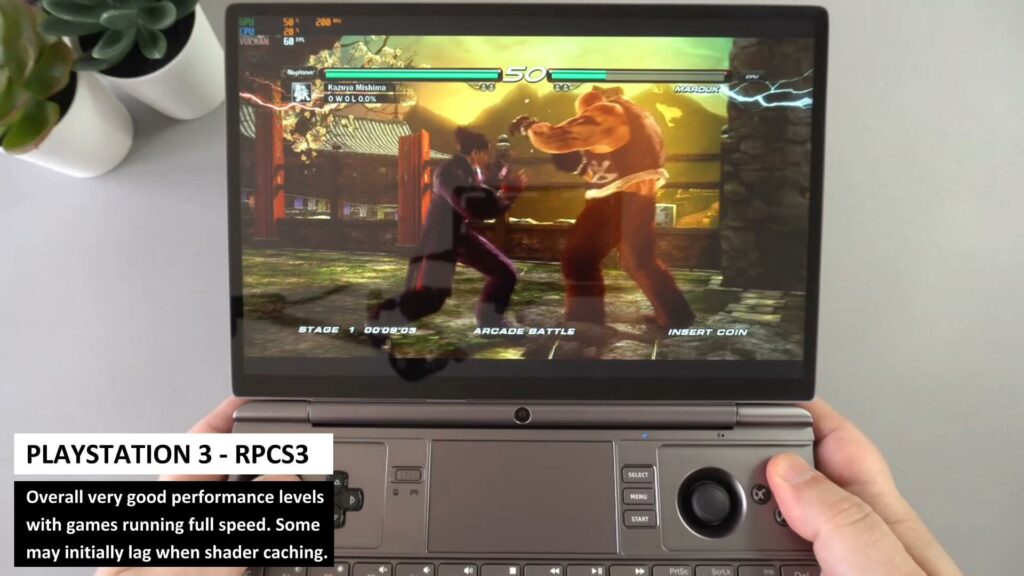
PlayStation 3-emuleringen er generelt veldig god, og et anstendig antall spill er fullt spillbare. Avhengig av spillet kan du få noen innledende forsinkelser mens shader caching. Hvis det er noen problemspill, kan du prøve å låse bildefrekvensen til 30 for å se om det hjelper.
Xbox 360 - Xenia
Xbox 360-emulatoren Xenia er under aktiv utvikling, og spillkompatibiliteten er veldig blandet. Vi fikk Sonic Racing til å fungere med 30 FPS, som jeg tror originalen kjørte med. Andre spill vil kjøre fint eller saktere, men et anstendig antall XBLA-titler fungerte bra!
Ryujinx & Yuzu
Både Ryujinx- og Yuzu-emulatorene er fortsatt under aktiv utvikling, så ytelse og kompatibilitet kan endre seg fra dag til dag. Vi har prøvd noen forskjellige spill, og generelt sett er ytelsen god.
Avsluttende tanker
Totalt sett er GPD WIN MAX 2 gaming mini laptop veldig imponerende! I løpet av det siste året har vi sett en gradvis økning i ytelsen på håndholdte PC-er, men Ryzen 6800U blåser de andre av banen. Det var fantastisk ytelse på tvers av spillene og emulatorene vi prøvde! Og det er før vi har justert strøminnstillingene, koblet til en eGPU eller prøvd litt VR-spill! Det sparer vi til kanskje en annen GPD WIN MAX 2-anmeldelsesartikkel 🙂
Hvor kan jeg kjøpe GPD WIN MAX 2?
Du kan kjøpe din GPD WIN MAX 2 her, og ikke glem å bruke rabattkoden WINMAX25OFF i kassen (gjelder ikke hvis det er et salgsarrangement på gang)! Hvis du ikke er interessert i dette, kan du se vårt utvalg av håndholdte spill-PC-er her.
Og apropos å ikke glemme… at AYANEO, ONEXPLAYER og nykommeren AOKZOE snart har sine egne 6800U-modeller tilgjengelig. Vi må vente litt lenger til de blir tilgjengelige for å se om det er noen ytelsesforskjeller, så hold utkikk etter disse anmeldelsene når vi får dem!
[azp_custom_product id="41″]





